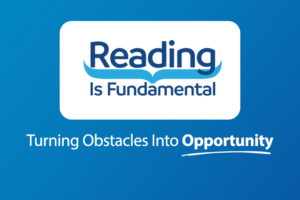Steve Delfin | February 18, 2014
CSR Results: Why the Difference Between Outcomes and Outputs Matters
Originally Posted On: CSRwire.com Inspired Giving Series
They filled Capital Hilton ballroom in Washington, DC; leaders of large and small charities from throughout the country trying to build higher performing organizations “managing to outcomes”. The “After the Leap” conference was the brainchild of Mario Morino, Founding Chairman of Venture Philanthropy Partners and Chairman of the Morino Institute where Morino, who made his fortune in the early days of the tech boom, has for the past two decades turned his innovative mind and business acumen toward helping the philanthropic sector embrace meaningful outcomes.
His ground-breaking book, Leap of Reason: Managing to Outcomes in an Era of Scarcity (2011), urges leaders government, business and the philanthropic sectors to take “bold action” in order to focus increasingly limited resources where they do the most good in addressing pressing social needs. I’ve been following Morino’s work now for over 15 years and have watched his influence begin to move the discussion from “why” should we do this to “how”. And just as importantly, I watched the symposia and conferences discussing outcomes and evidence based philanthropy grow from gatherings of a couple dozen thought leaders, to what is now truly becoming a movement of change and impact.
This is important for several reasons and should be of serious interest to several key leaders and influencers in philanthropy. First, the reasons. Morino was the closing speaker at the After the Leap Conference. He should have been the first because his message actually framed the problem/reason why outcomes and results are so vital.
Here are the whys:
- Economics and demographics. Shrinking disposable income, aging population and increased demands for basic human care services as a result of stagnant and declining wages and the inevitable drop in federal and state funding for human care services will require that we make hard choices. In the past where government and human care and social interest institutions could survive and even thrive based on brand awareness and emotional appeal, there will now be pressure to only fund those institutions and organizations that can demonstrate through data and analytics that their programs work, are scalable to solve big problems, and sustainable.
- Outcomes actually matter. There’s a big difference between outputs and outcomes. Outputs, while important, measure how much of something occurs and by when. Outcomes on the other hand measure behavior or systemic change. Here’s a very simple graphic from www.uwex.edu showing this distinction:
-
- Performance actually matters. As multiple speakers at After the Leap emphasized, you can’t have competent, problem-solving, innovative, outcomes-driven organizations without the capacity and infrastructure to effectively and consistently execute.
‘How’ Complexity
As with any big idea, it’s the “how” that gets complex. The concepts of “performance management” and “evidence-based outcomes” have been bouncing around philanthropy and the civil sector for quite some time. In regard to the philanthropy side of the equation, there have and continue to be those who fear that embracing “business practices” will result in a loss of mission and soul by charitable organizations. If you want to see the debate, just go on line and search “evidence based philanthropy”. Five years ago the search would have surfaced mostly stories and discussions that were negative. But now the body of evidence and knowledge has increased, demonstrating that for a growing number of high performing charities, performance management and an evidence-based approach is working.
In listening to the speakers, panel discussions, Q&A and hallway conversations, I came to the conclusion that given what Morino calls the coming “era of scarcity”, the performance management and evidence-based advocates are on the right path. And I’ve become one of them.
Scaling Outcomes, Not Outputs
As a former philanthropy officer for a major multi-national company and now leading America’s Charities, an organization that works with employers to better connect their workplace giving, philanthropy and employee engagement efforts with broader CSR strategy, I see evidence that corporate funders and gatekeepers are beginning to get wind of this emerging movement and fast approaching need. But I also sense many of them are somewhat clueless, simply following a path of “doing well by doing good” and not seriously considering the effectiveness, sustainability or scalability of the causes and issues they fund.
Numbers of grants given, numbers of volunteer hours by employees, numbers of toys or clothing collected and distributed are outputs. Good things, yes. But they are not outcomes.
I have one last point on outcomes. There are a number of charity watchdog and rating service groups that have emerged over the years. Some have evolved into meaningful and substantive organizations that are working hard to embrace and incorporate more sophisticated analysis into their charity rating systems. Others continue to “rate” charity effectiveness on single factors, like administrative overhead, or salaries paid to executives, or outputs instead of outcomes. This is complex and nuanced stuff that cannot be “dumbed down”. Although some media outlets continue to try to do so with their annual Top 1o Best and Worst Charities story. In fact, one of Morino’s big ideas (which I love) is to take the After the Leap message on the road in the equivalent of an IPO road show for meetings with editorial boards, key community and business leaders, and other important stakeholders (how about donors!) to begin influencing their thinking.
It is going to take a tri-sector commitment and collaborative effort to meet the most vital human care and social responsibility needs as public sector resources become more scarce. As Morino says in Leap of Reason: Managing to Outcomes in an Era of Scarcity, if we don’t manage to outcomes we greatly diminish our collective impact.
>> Read “Why Investing in Performance and Impact is Crucial“
Additional Resources
- Leap of Reason.org
- Venture Philanthropy Partners
- Center for Effective Philanthropy
- Center for High Impact Philanthropy
- Lucy Bernholz Blog
- Stanford Social Innovation Review
- NYT Blog on Nurse Family Partnership
- Philadelphia Social Innovations Journal
- Urban Institute
Steve Delfin
|
Get Resources and Insights Straight To Your Inbox
Explore More Articles
The Time to Act is Now
The results of the 2024 National Assessment of Educational Progress (NAEP) are in, and the findings are, in a word, heartbreaking. This assessment serves as…
Read ArticleOpen Position: Non-Profit Account Manager, Employee Assistance Funds & Scholarships (Remote – Full Time)
We are professional, agile, customer-centric and our goal is to inspire employees and organizations to support causes they care about. We help nonprofits fundraise unrestricted,…
Read ArticleEXCITING NEWS: Humane Society of The United States and Humane Society International is now HUMANE WORLD FOR ANIMALS
For over 70 years, Humane World for Animals, formerly called the Humane Society of the United States and Humane Society International, has worked around the globe to…
Read ArticleGet Resources and Insights Straight To Your Inbox
Receive our monthly/bi-monthly newsletter filled with information about causes, nonprofit impact, and topics important for corporate social responsibility and employee engagement professionals, including disaster response, workplace giving, matching gifts, employee assistance funds, volunteering, scholarship award program management, grantmaking, and other philanthropic initiatives.



 Steve has 30 years of experience working in and with major national and international not-for-profit organizations and socially-responsible international corporations, including a long history of engagement with and leadership around workplace giving and employee volunteerism programs.
Steve has 30 years of experience working in and with major national and international not-for-profit organizations and socially-responsible international corporations, including a long history of engagement with and leadership around workplace giving and employee volunteerism programs.

